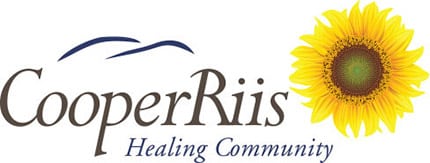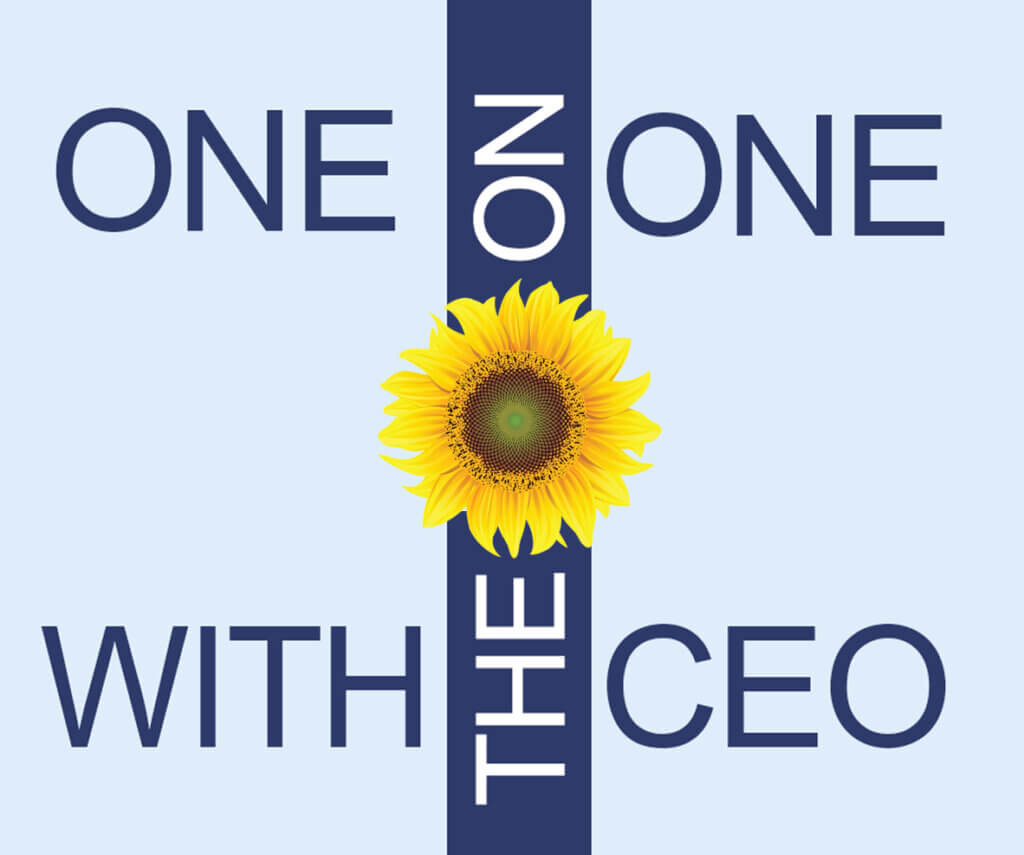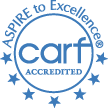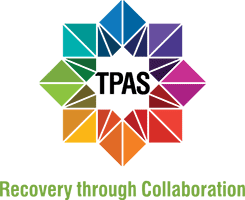
“…In terms of the uniqueness of our kind of program and organization… I’ve seen a lot of models that talk about person centered care… and supporting the whole individual, but I’ve never been with an organization that really takes that farther in terms of creating a whole foundation of practice and attitude around how we support an individual and really having them be the lead of their own process...”
Johnnie Featherston, MA, LCMHC
Chief Clinical Officer
Read the entire transcript below:
[ERIC] Johnnie, we’re talking about World Mental Health Day and we are excited to talk you about how CooperRiis has been able to participate in creating options for people that would not have been there had we not been able to create this wonderful program 20 years ago. What are your thoughts on the uniqueness and the innovative nature of what CooperRiis has been able to do and who we’re able to serve?
[JOHNNIE] Yeah. That’s a big question. I mean, I think, in terms of the uniqueness of our kind of program and organization, I’ve seen a lot of models that talk about person-centered care, you know, and supporting kind of the whole individual, but I’ve never been with an organization that really takes that farther in terms of creating a whole foundation of practice and attitude around how we support an individual and really having them be the lead of their own process. That, coupled with the real focus on community. And I think a lot of times in mental health care, when people come into particularly residential treatment, the idea is there in the building, there’s community there, but that’s not really- you’re putting people together, but you got to do things that foster community and help people have a sense of their place and their role and being part of something bigger than themselves. And I think those are some of the things that really set CooperRiis apart.
“…support the notion that mental health is a basic human right. You know, it’s up there with food and shelter and access to quality health care...”
Eric Levine, Ed.D.
President and CEO
Mental Health as A Basic Human Right
[ERIC] Yeah, I appreciate that and agree with that, of course. And when I pull the lens back a little bit and think about CooperRiis, in the spectrum of services that are out there, really supports the notion that mental health is a basic human right. You know, it’s up there with food and shelter and access to quality health care. And I just think it’s so important that – what I really love about CooperRiis is that we approach serving people with people, not to people. And, we approach it from the non-categorical standpoint. We try to stay away from labels. I mean, sure, we have to use diagnoses as a part of what we do, but it’s not what leads the conversation. What leads the conversation is how we can support people in their journey for recovery. I also like the fact that from an advocacy standpoint, we’re really careful and thoughtful about medications. I mean, of course, we have to use medications because we work with some pretty serious situations that require it, but optimizing their use is certainly a focal point of what we do. And, as a clinician, I know you’ve been a big part of that conversation for many- you’ve been with us for about 15 years at this point.
So you, you’ve been really one of the architects of developing that model.
[JOHNNIE] Yeah, I mean, I think the medication piece is really critical in my mind. You know, medication, psychiatry – that sort of aspect of treatment is really important for a lot of individuals. And what we try to do is look at where that fits and right size it a little bit because medication just doesn’t, doesn’t take care of everything for everybody. And, you know, we’ll have a lot of folks that come in are, are admitted to CooperRiis and have the pretty substantial kind of cocktails of medication, where they’ll be on numerous medications and you start down this road of taking a medication and then taking another medication to mitigate the side effects of one medication, and throwing different things at an individual. So we try to look at how we can really simplify people’s regimen, really target, look at what we’re targeting with the medication, and then looking at all the other ways we can support that individual. So, a lot of times there’s education, there’s emotional development, there are coping skills, there’s a lot of pieces that go in, even just nutrition and exercise– into supporting somebody’s overall wellness, that if we lean too heavily on the medication, we don’t tend to see good outcomes longer term for individuals. So, when you’re really looking at the whole person, the whole lifestyle, the different aspects of their kind of behavior and what emotional support they need, we find that that kind of foundation with targeted medication use sets people up better.
“…we had this 2 block system of providing care- people either got nothing, or they got everything- and there was nothing in between. And certainly since the 80s, we’ve seen an evolution, or a development of integrated systems of care…”
Eric Levine, Ed.D.
President and CEO
[ERIC] You know, I’m thinking a lot about access to quality mental health services as a basic human right. And I’m thinking back on the history of psychiatric services internationally, but certainly in this country. And it really wasn’t that long ago that we had this 2-block system of providing care- people either got nothing, or they got everything- and there was nothing in between. And certainly, since the 80s, we’ve seen an evolution, or a development of integrated systems of care, where families and individuals needing services and programs were able to create opportunities for people that met them where they were, you know, the whole concept of least restrictive environment. Certainly, the world of education transfers to the adult world of providing services. We have been able to develop a model here at CooperRiis where we have everything from residential programming to now our new partial hospitalization program, which is an outpatient program. Maybe you can talk a little bit about the value in creating a system of care that can meet people where they are and not just relying on a specific, very intensive residential only focus for providing support.
The Evolution Of Programming At CooperRiis
[JOHNNIE] Sure. Yeah, I’ve been really excited to be part of, and just sort of see the evolution of our kind of model and programming over time. I think, you know our farm residential program being the flagship program for CooperRiis, you know goes back to those unique features that we talked about, the sort of really recovery orientation, like taking the person-centered orientation really far. Kind of going deeper with that, and then the community piece, and I think the farm offered people a place to really land and be part of something different than what they had experienced. And over time, we’ve seen, like you’re highlighting, Eric, that people need different levels of care, different types of care, different time frames, and really, kind of honoring that to go to residential care or to really invest your time into mental health services, it sort of challenges your independent life. There’s a lot of sacrifices that go with that. And so, I think we’ve been able to adapt, and build programming that reaches a lot of different folks. So, we have the longer term, the farm level residential care that supports somebody’s ability to maintain structure, be part of work crews and still has clinical support. We’ve done more intensive clinical support programming in our CooperRiis at Asheville program and, really started working with insurance to make it more accessible, more affordable. And then really work on robust programming in terms of transitional living and outpatient care with the PHP.
So, we’re really looking at how we move more and more into that model of helping people be able to have the least sort of intensive, but also invasive level of care, you know, where they can still have a life, still feel like they’re independent, they’re able to be with friends, they’re able to have things going, while having certain supports in place.
So, you know, I think for CooperRiis, in terms of our programming, I see it is a continual evolution. I think we’ve done a lot over the years to really expand and be able to meet those different needs. And then also to have people be able to move back and forth within our system of care. When people do need a little bit more intensive level of support, they have some new challenges come up or some challenges that increase, we’re able to work with that within our system in a lot of situations.
[ERIC] One of the changes that we’ve made, in my time here was the inclusion of folks with neurodiversity who are on the autism spectrum. And I’m really proud of the work that CooperRiis has done to expand and enhance our services to serve folks that meet that profile. Can you talk a little bit about that? And was it really that big of a stretch to begin to serve these folks? My sense is we’ve always been serving folks on the spectrum. It’s just- we made the effort more intentional. And what has been your experience with the value that has brought to CooperRiis and to the families, obviously, and individuals we serve?
“…we’ve always worked with folks that show a range of presentations on the neurodiverse spectrum. And particularly looking at the autism spectrum, I think we’ve done a really good job with those individuals working on an individual basis...”
Johnnie Featherston, MA, LCMHC
Chief Clinical Officer
[JOHNNIE] Yeah, well, I think it’s a really significant value because I think, particularly for adults with the range of neurodiverse presentations, there’s not a lot of specific supports there. There’s more things in place for adolescents- younger kids- but really not as much for adults. And so, families, you know, my experience over time- I’ve really looked for places. And I think you’re right that we’ve always worked with folks that show a range of presentations on the neurodiverse spectrum. And particularly looking at the autism spectrum, I think we’ve done a really good job with those individuals working on an individual basis. But I think with this emphasis that we’ve had over the last couple of years and becoming more informed and enhancing some of our services around that. What I see is us doing better with it as a system.
So, it’s integrated more and not just good clinical work, but now, really kind of helping all of our staff, have a better grasp of how to support individuals in our direct care roles or coaching staff. Also, looking at some of our environments and structure and things that may have been workable, but created some anxiety or some difficulty with some of the sensory processing types of things. And so, to me, the biggest shift is that instead of doing some good work with individuals, we’ve, as a system, integrated more infrastructure to support those folks. And that’s still a growth edge. We want to continue doing that, but I think we’ve made a lot of gains there.
[ERIC] Yeah, I just want to close with reminding the audience or whoever’s listening or watching this that CooperRiis is in no way saying that we are offering an autism program. What we’ve done is we’ve taken our existing model and enhanced it to be able to include a more diverse group of people from a neurodiversity standpoint. So anyway, Hey, Johnnie, thank you very much for your time. We got to wrap it up. So if anybody is interested in checking us out, go to CooperRiis.org and get in touch with our admissions office or give us a call. We’re certainly interested in talking with you.
So thank you, Johnnie, and we’ll talk soon.
[JOHNNIE] Thanks Eric.









